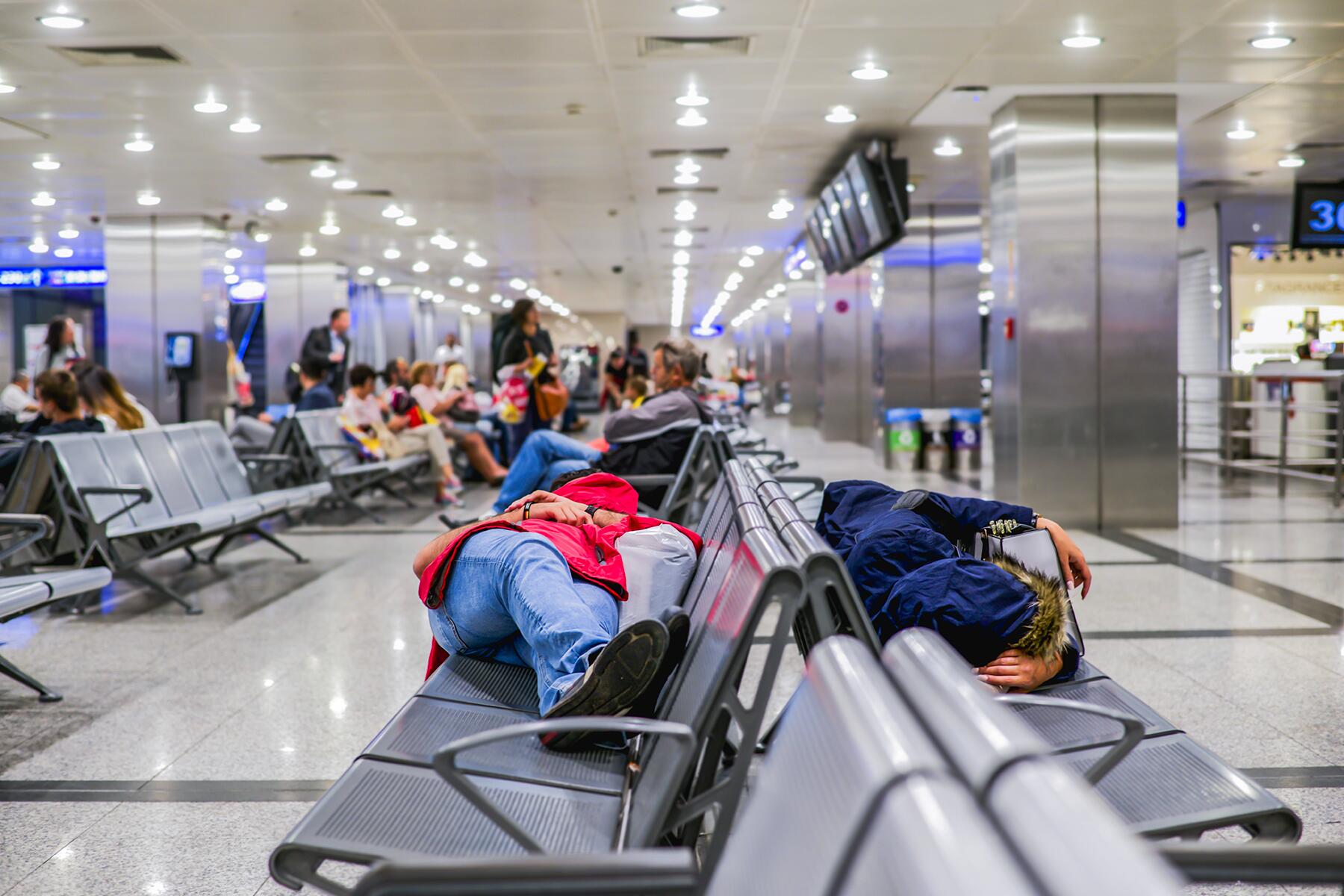How can travelers minimize the impact of delays and cancellations if this is going to be the new normal?
Flight disruptions worldwide remain above 2019 levels and may remain so into the near future, a new report from travel technology firm Amadeus suggests. The report, which was drawn on interviews from airline and airport senior leaders in the United States, Europe, and other countries, also indicates that a majority of those surveyed felt that flight delays and disruptions will remain elevated.
“In 2022 airlines struggled with supply and staffing issues, but during 2023, airlines and their partners are simply facing an unprecedented return of demand. Of course, that’s very welcome, but it brings its own operational challenges,” said Harry Grewal, Director of Infrastructure and Customer Experience at the international aviation governing agency IATA.
In short, airlines shrank workforces during the pandemic. When demand came roaring back, they had to hire to replace the employees that had left, but the ones they hired weren’t industry veterans—they had a learning curve.
Recommended Fodor’s Video
Changing visa restrictions and tenuous political situations can also place strain on airline operations. In the report, an Air France executive pointed to difficulties offering hotel rooms for passengers without transit visas for the European Union, because those passengers couldn’t be cleared by authorities to leave the airport to stay in a hotel during an extended delay.
So what does this mean for travelers if a majority of airline executives around the world are resigned to the fact that there won’t be an easy fix for flight disruptions in the near future? And how can travelers minimize the impact of delays and cancellations if this is going to be the new normal?
Know Your Rights
In the United States, airlines vary by how they’ll accommodate passengers in the event of a flight disruption. The Department of Transportation (DOT) maintains a dashboard for consumers to find out which assistance US-based airlines have committed to providing in the event of a controllable (i.e. within the airline’s control, like staffing or mechanical issues) delay.
For airlines from countries in the European Union, and on flights operated by US carriers departing EU countries, a different set of rules applies. Europe’s consumer protection regulations, commonly referred to as EU 261, provides for cash compensation for significant controllable delays, on top of rebooking or rerouting.
Consider Travel Insurance
Travel insurance can pick up a lot of the slack when it comes to travel delays—particularly if the delays are for a reason the airline won’t provide compensation for, like weather, or if the potential for losses are greater than what airline’s will compensate for (even if it’s a controllable delay or cancellation, they won’t refund your cruise, tour, or any other prepaid expenses if you miss them).
Third-party travel insurance also (in most cases) provides more comprehensive coverage than the more limited policies sold by airlines during the purchase process for their tickets. Some insurers will even pay a set compensation amount for travel delays, even if the airline has provided accommodations.
Build More Buffers
It’s also worthwhile considering whether to build itineraries for better peace of mind, if an increase in travel disruptions is expected to be the “new normal”. While a short connection time between flights reduces overall journey time, it can heighten the drama of even the shortest flight delays. Building longer layovers into connecting itineraries, and allowing more time to arrive at a destination and get settled before embarking on major activities (like a cruise), allows travelers more time to slow down and be aware of the change in their surroundings—and also more time for things to go wrong without wrecking the entire journey.
Stay Informed
The threat of labor strikes has increased over the past year in both the US and Europe. Germany is currently facing a wave of labor strikes—first from airport security staff, and now from the airline’s own ground staff—in addition to strikes or stoppages on some of the country’s public transit systems. Travelers bound for or transiting Germany have found their flights cancelled without warning, even though the strikes were warned for in advance.
Travelers should also check to ensure they have appropriate entry documents for all countries on their itinerary—even if they’re only planning to make connections there. Savvy travelers also keep an eye out for news of labor unrest, political tension, or impending foul weather so they can have their backup plans in place before they head to the airport. Many airlines facing labor actions or anticipating inclement weather will also proactively allow passengers to changed their travel plans without penalty.





